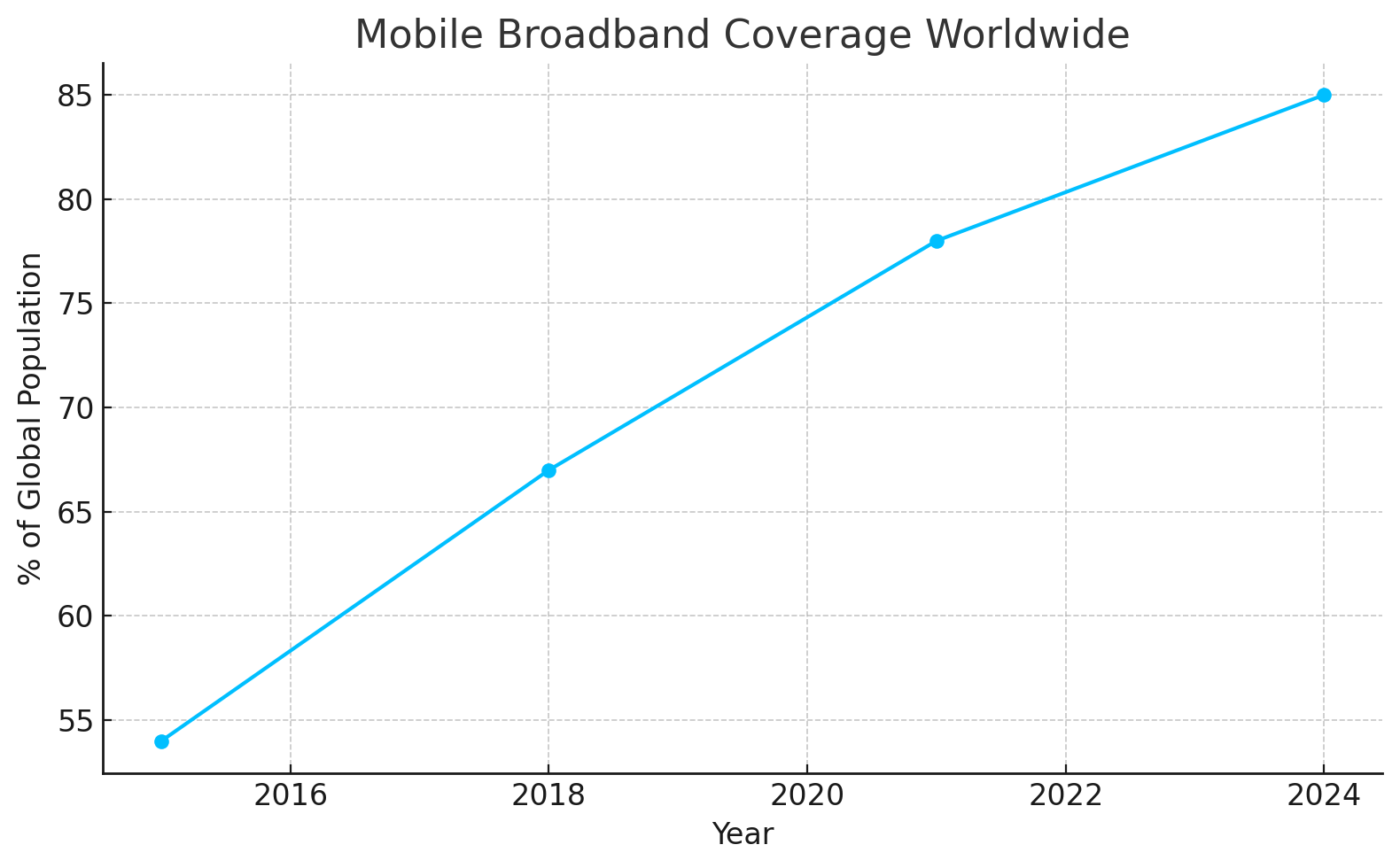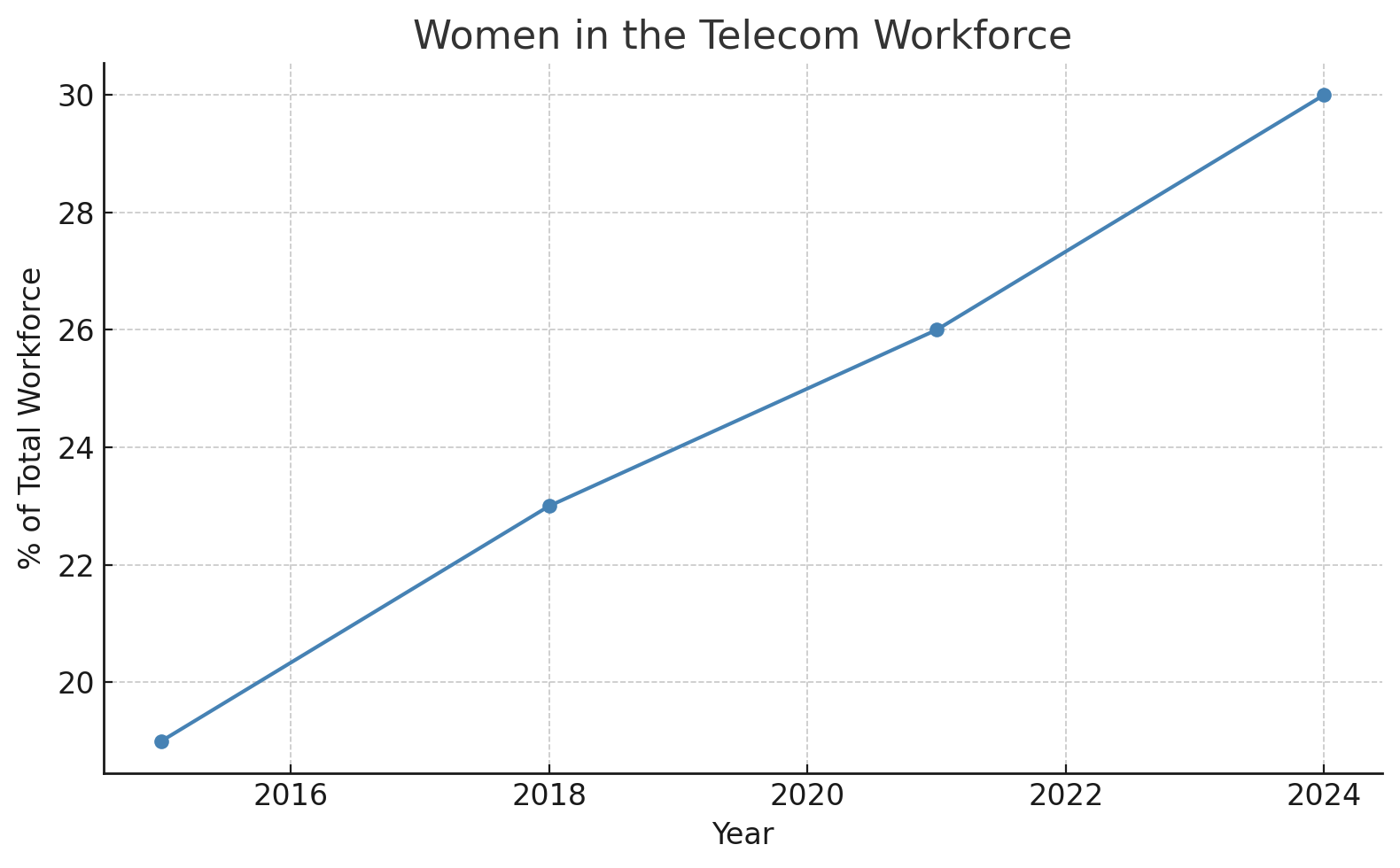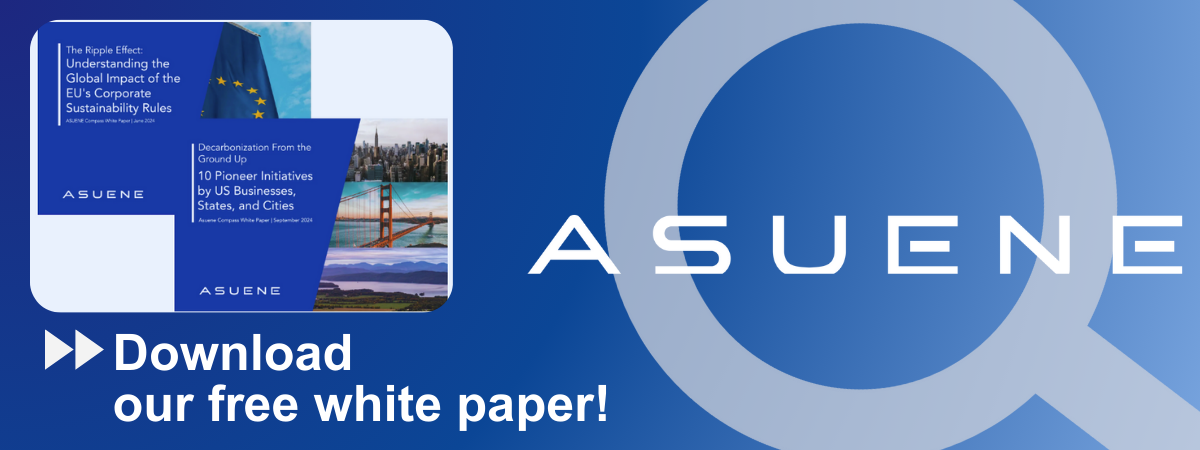- Article Summary
-
As the backbone of the digital economy, the telecommunications industry is under growing pressure to lead on ESG. With billions of people relying on reliable, fast, and secure connectivity, telcos are expected to reduce environmental impact, promote digital inclusion, and improve transparency. This article explores five major ESG trends shaping the telecommunications sector in 2024 and beyond.
Energy Efficiency and Decarbonization of Networks
Telecom networks consume large amounts of electricity, particularly with the growth of 5G, data traffic, and edge computing. Telcos are accelerating their transition to low-carbon operations.
Key initiatives:
- Powering networks and data centers with 100% renewable energy.
- Virtualization of network functions to reduce hardware dependency.
- Energy-efficient cooling and intelligent load balancing in base stations.
| Telecom Operator | Net-Zero Target | % Renewable Energy Use (2024) | Scope 3 Reporting |
|---|---|---|---|
| Vodafone | 2040 | 85% | Yes |
| AT&T | 2035 | 63% | Partial |
| NTT DOCOMO | 2040 | 76% | Yes |
| Orange | 2040 | 70% | Yes |
Scope 3 emissions—such as emissions from device manufacturing and customer energy use—are gaining attention as reporting matures.
Expanding Digital Inclusion and Access
Social equity is a growing area of ESG concern. Telcos are uniquely positioned to close digital divides by expanding affordable, accessible, and inclusive services.
Key programs:
- Affordable mobile and broadband plans for low-income communities.
- Infrastructure deployment in rural and underserved regions.
- Accessibility tools for people with disabilities.

Global Population with Access to Mobile Broadband (%)
Year | Coverage
----------|----------
2015 | 54%
2018 | 67%
2021 | 78%
2024 (E) | 85%
Regulators and institutional investors now evaluate telcos not only on network speed and coverage, but also on their role in closing the digital divide.
Cybersecurity, Data Governance, and Trust
With rising cyber threats and growing data traffic, telcos must demonstrate strong governance of digital risks. Trust and privacy have become essential ESG concerns.
Key developments:
- ISO 27001 and NIST-based cybersecurity frameworks.
- Transparency in data retention and sharing practices.
- Incident response KPIs tied to board oversight.
| Governance Indicator | Industry Standard | ESG Leader Performance |
|---|---|---|
| Avg. Time to Detect Breach | <72 hours | <24 hours |
| Encryption Compliance Rate | 92% | >99% |
| Independent Security Audits | Annual | Quarterly |
Shareholders and regulators are increasingly demanding ESG assurance over data ethics and cyber readiness.

Diversity, Equity, and Workforce Engagement
The telecom workforce is evolving in the face of automation, hybrid work, and generational change. ESG leadership now requires a comprehensive social strategy.
Strategies include:
- Gender and minority representation targets.
- Inclusive upskilling and reskilling programs.
- Transparent reporting on pay equity and turnover rates.

Women in Telecom Industry (% of Workforce)
Year | Global Average
----------|----------------
2015 | 19%
2018 | 23%
2021 | 26%
2024 (E) | 30%
Companies with inclusive cultures are seeing higher innovation scores and better ESG ratings in third-party assessments.
Sustainable Reporting and ESG-linked Investment
Investors are increasingly scrutinizing how telecom companies disclose ESG metrics and align with regulatory standards like the EU CSRD and ISSB.
Recent trends:
- Adoption of SASB standards for telecoms.
- ESG-linked bonds and revolving credit facilities.
- External assurance of emissions and diversity metrics.
| ESG Framework | Adoption Rate in Telecoms (2024) |
|---|---|
| SASB (Telecom Standard) | 62% |
| TCFD | 49% |
| CSRD (EU only) | 41% |
| ISSB (Onboarding) | 28% |
Green financing in the sector is increasingly tied to meeting specific ESG performance thresholds, especially on energy, inclusion, and governance.
Conclusion: Building a Sustainable Digital Future
Telecommunications companies are more than just service providers—they are digital infrastructure enablers. In 2024 and beyond, ESG performance will determine their license to grow, partner, and lead. From cutting emissions to closing connectivity gaps and protecting data, telecoms must act as stewards of both technology and trust.
Those that embed ESG into their business models will gain the confidence of regulators, investors, and the public—and help shape a more connected, inclusive, and sustainable future.
Why Work with ASUENE Inc.?

ASUENE USA Inc., a subsidiary of Asuene Inc., is a key player in carbon accounting, offering a comprehensive platform that measures, reduces, and reports emissions, including Scope 1-3, with expertise in decarbonization. Asuene serves over 10,000 clients worldwide, providing an all-in-one solution that integrates GHG accounting, ESG supply chain management, a Carbon Credit exchange platform, and third-party verification.
ASUENE supports companies in achieving net-zero goals through advanced technology, consulting services, and an extensive network.

